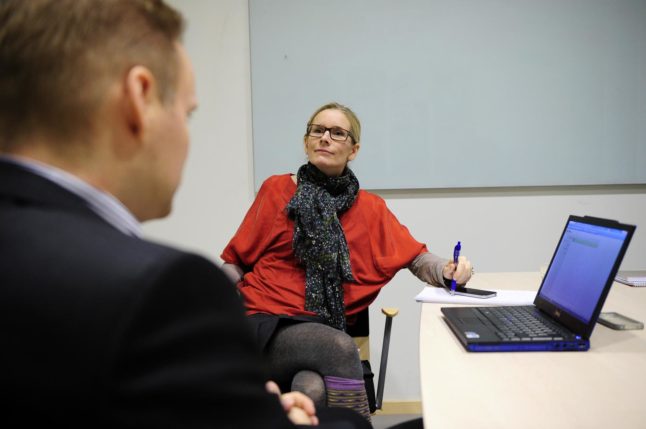What is the EU ‘single permit’?
The EU’s single permit grants third country nationals both a work and residence permit for an EU country with one application.
In 2022, 3.6 million non-EU citizens were issued a single permit to both reside and work in the EU, according to the European statistics agency Eurostat. Almost half of them (48.8 per cent) of the permits were issued for work reasons. France, Spain, Italy and Portugal together issued 63 per cent.
It was designed to simplify access for people moving to the EU for work. It also aims to ensure that permit holders are treated equally to the citizens of the country where they live when it comes to working conditions, education and training, recognition of qualifications and more.
READ ALSO: What is the EU’s ‘single permit’ for third-country nationals and how do I get one?
So what will change exactly?
Workers moving to the European Union on the EU’s ‘single permit’ will no longer be tied to the employer who sponsored them, but they will be able to change jobs under certain conditions, based on new rules adopted by the European Parliament.
The European parliament has now endorsed by a large majority (465 votes in favour, 122 against and 27 abstentions) an update of the directive that regulates the single permit, which was first adopted in 2011.
The changes concern people who move to the EU for the purpose of work.
Under the new text, it will be possible for single permit holders to change employer, occupation and work sector, just with a notification from the new employer to the competent authorities. National authorities will have 45 days to oppose the change.
EU states will also have the option to require a period of up to six months during which the single permit holder has to remain with the first employer. A change during that period would be possible, however, if the employer seriously breaches the work contract, for instance imposing exploitative conditions.
Javier Moreno Sanchez, the Spanish member of the European Parliament who was in charge of the change, said: “The review of the single permit directive will support workers from third countries to reach Europe safely, and European companies to find the workers they need. At the same time we will avoid and prevent labour exploitation, by strengthening the rights of third countries’ workers and protecting them more effectively against abuse.”
Under the new rules, it will be possible to apply for the single permit from a third country or from within the EU, if the applicant already has a valid residence permit. “A person who is legally residing in the EU could request to change their legal status without having to return to their home country,” a note by the parliament explains.
After the application, authorities should issue the single permit within three months, instead of the current four, but the procedure can be extended by 30 days if the file is particularly complex, and the time to deliver the visa is excluded.
Under the changes single permit holders who lose their job will be able to stay in the EU country where they live for three months while the permit is valid (it’s two months under current rules), or six months if they have been in the country for more than two years, to find another job. But each state may decide to offer longer periods.
If a worker has experienced exploitation, member states can also extend by three months the period of unemployment during which the single permit remains valid.
In general, after three months of unemployment, authorities may require evidence that the permit holders have sufficient resources to support themselves without using social assistance.
When will changes take place?
It will still take some time before the new rules are in place. The text of the directive has already been agreed with EU governments but still has to be formally adopted by the EU Council. After that, EU countries will have two years to introduce the changes in their national law.
These rules do not apply in Denmark and Ireland because both have opted out from EU policies in the area of freedom, security and justice, which include external migration.



 Please whitelist us to continue reading.
Please whitelist us to continue reading.
Member comments